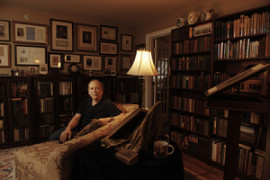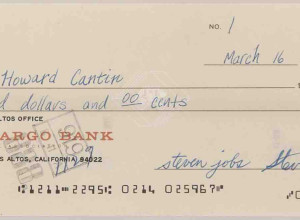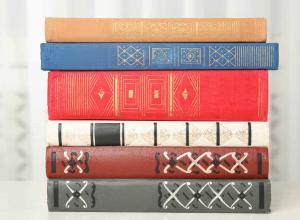The House of Twenty Thousand Books
If ever there were a headline--or a book title--to entice bibliophiles, surely this is it. And Sasha Abramsky's new book, The House of Twenty Thousand Books (NYRB, $27.95), a combination of memoir, history, and biography, more than delivers on that lure.  Abramsky, a journalist and senior fellow at Demos think tank, writes lovingly of his grandparents' house at 5 Hillway, in Highgate, London. Chimen, the Russian-born atheist son of a famous rabbi, and his wife, Mimi, gathered not only thousands of rare books there but hundreds of scholars, friends, and family members, turning their home into "one of left-wing London's great salons." Each chapter invites readers into one room of the house to survey its bookish contents and to hear fascinating accounts of prominent visitors, bitter arguments, and delicious meals.
Abramsky, a journalist and senior fellow at Demos think tank, writes lovingly of his grandparents' house at 5 Hillway, in Highgate, London. Chimen, the Russian-born atheist son of a famous rabbi, and his wife, Mimi, gathered not only thousands of rare books there but hundreds of scholars, friends, and family members, turning their home into "one of left-wing London's great salons." Each chapter invites readers into one room of the house to survey its bookish contents and to hear fascinating accounts of prominent visitors, bitter arguments, and delicious meals.
Chimen, introduced at a 1969 Jewish Book Week lecture as "possibly the greatest Jewish bibliophile in the world," collected both Socialist material and Judaica. Abramsky writes, "...every single room in the house, except the bathroom and kitchen, was lined from floor to ceiling with shelves double-stacked with books." There were rarities like The Communist Manifesto with both Marx's and Engels' personal annotations, and William Morris' complete collection of the Socialist League's journal, The Commonweal, stored in a box built by Morris. There were sets of egalitarian Everyman's classics too. The incredibly well-read Chimen, perhaps best suited for academic life, ran a bookshop called Shapiro, Valentine & Co. in London's East End in the sixties. His encyclopedia memory for bibliography served him well as he became the leading consultant on manuscripts at Sotheby's; he catalogued the collection of David Sassoon in the seventies, a sale that "essentially jump-started the modern global market in rare Hebrew materials." In his later years, Chimen joined the faculty of University College London and lectured widely on Jewish books and history.
In 2010, Chimen died at the age of 93, and his library--an estimated 15,000-20,000 volumes--was sold. The author kept a shelf-full of his grandfather's books as a legacy. More significantly, though, he documented his grandfather's life. It is an important story, and Abramsky confronts harsh truths with warmth and wisdom. He also understands (and celebrates) the bibliomania behind the floor-to-ceiling, double-stacked shelves. In discussing Chimen's friendship with Italian expatriate economist Piero Sraffa, he writes, "Over the decades, they swapped rare books and shared with each other the joy of the hunt, the unspeakable pleasure--that only a fellow connoisseur could understand--of finding a particular edition of a particular book or pamphlet, and of procuring it for a lower-than-anticipated price." It's a feeling that all of us can relate to.
Image via NYRB.
















